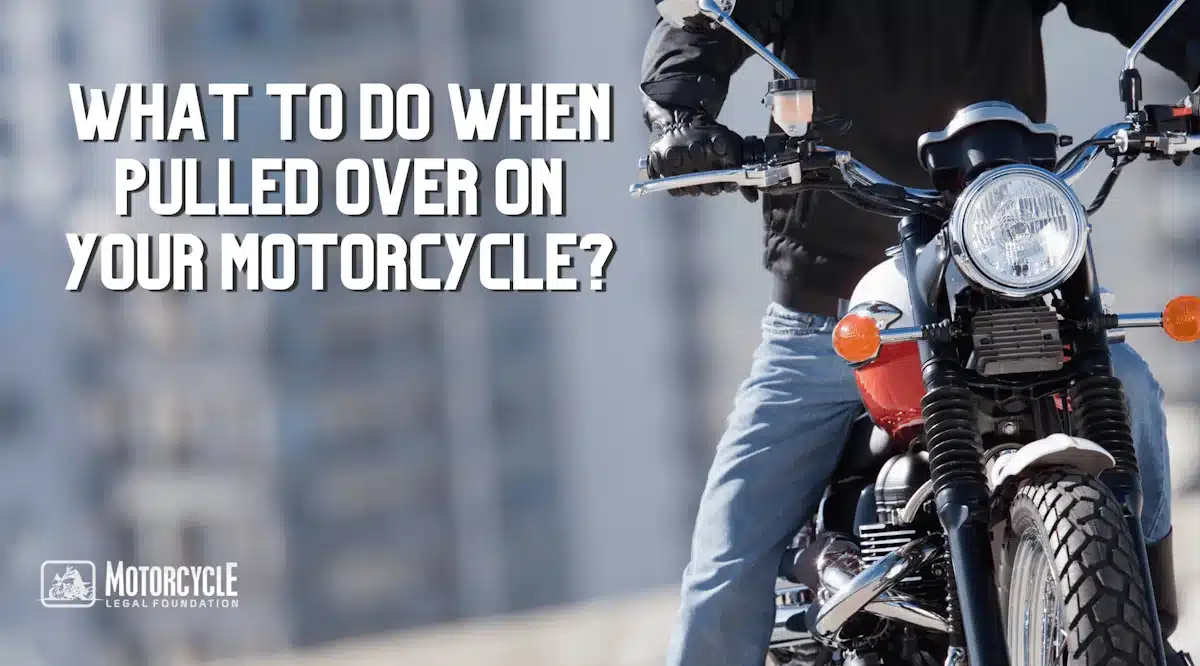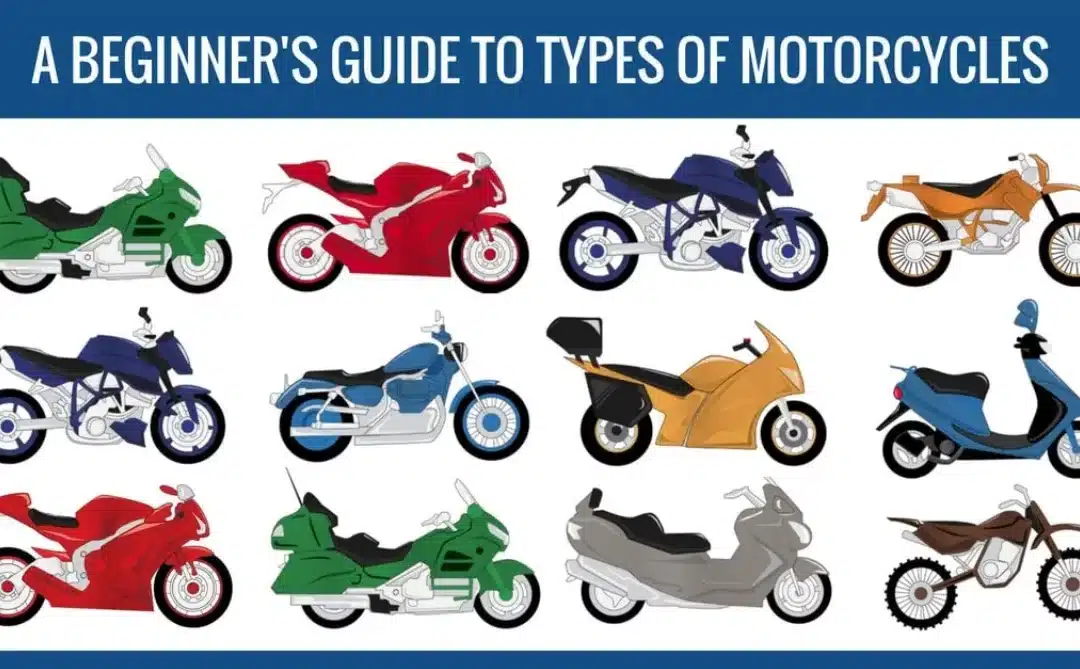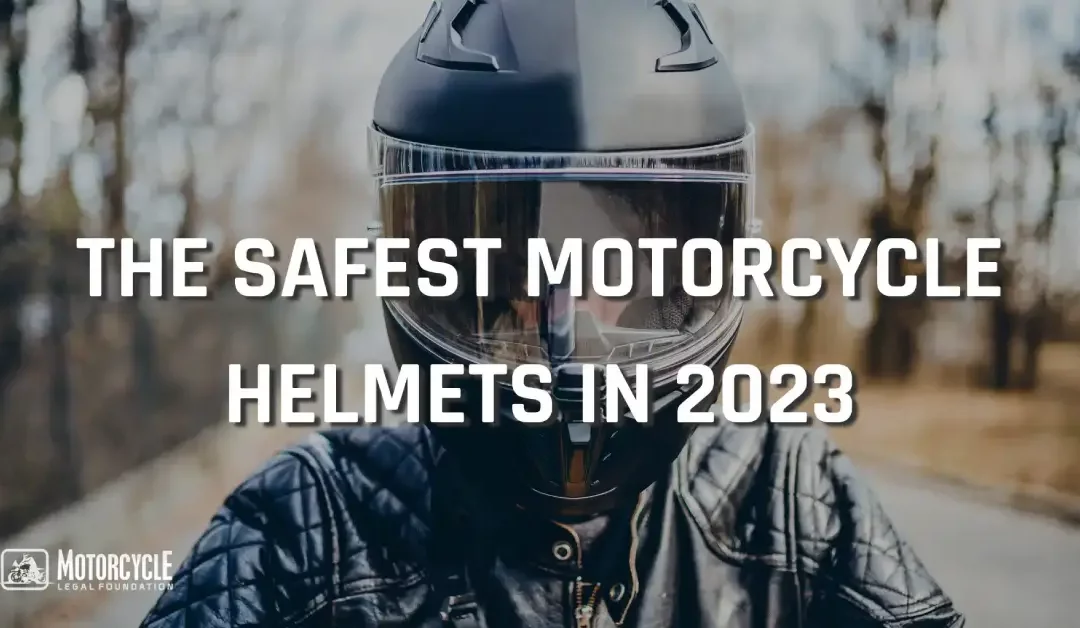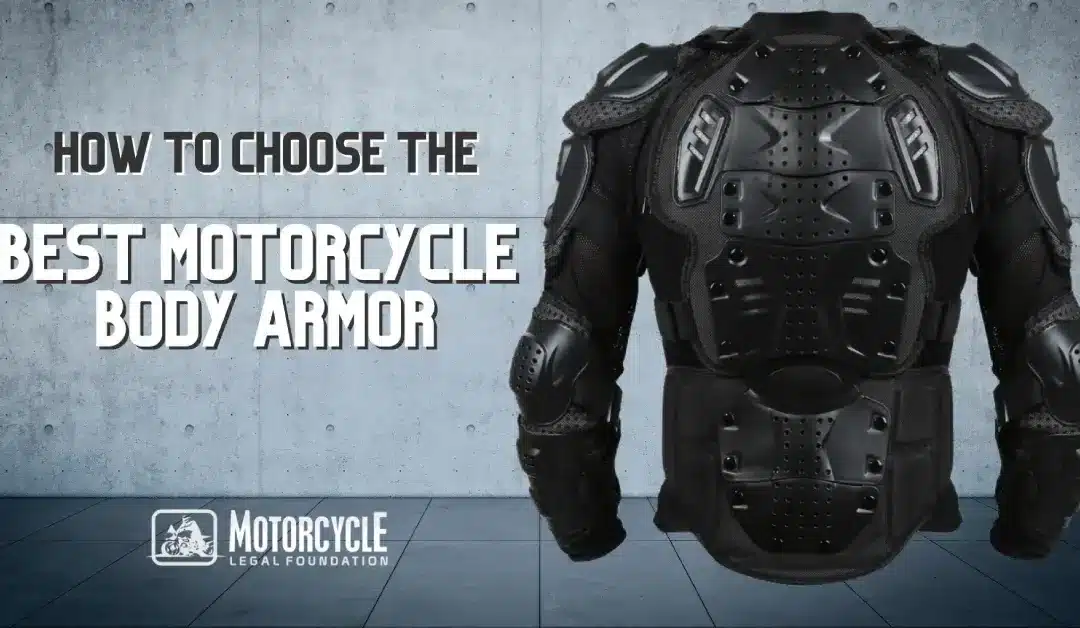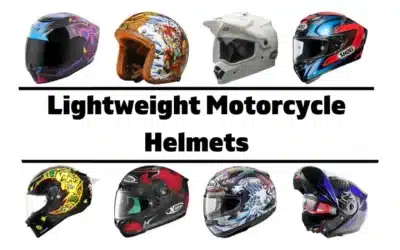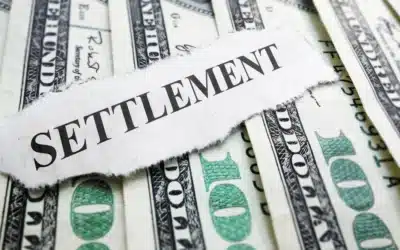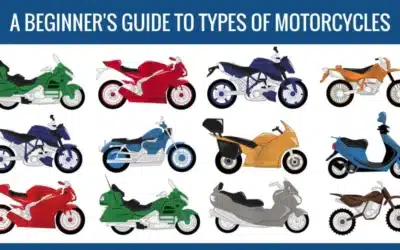Imagine you’re riding your motorcycle on a beautiful day. Traffic is light and flowing well, with no significant hang-ups or slowdowns. A police officer pulls behind you in traffic and turns on his lights and siren. “Is that for me?” you ask yourself. It is. You can’t believe you’re being pulled over, and at this moment, you start to wonder what you should do.
As we have discussed many times before, safety needs to be the number one priority when on a motorcycle. The officer wants you to pull over to the side of the road, and you need to assess how to do it safely. It may require changing lanes with a turn signal and gradually easing over a lane or two. Once onto the side of the road, you should be as far off as possible to avoid traffic.
Why may a police officer pull over a motorcyclist?
- Not wearing the correct protective gear – While most states don’t require protective gear beyond a helmet, riding in the correct gear shows you are concerned about your personal safety and it gives a good image to a police officer. If you’re worried about safety, you’re probably also worried about the law.
- Not wearing a helmet or a legal helmet (when the law requires it) – There are many states that do require a helmet to be worn, and most require it to be DOT certified. Keen officers that can spot the difference may pull you over for a confirmation inspection to make sure the helmet you are wearing is approved.
- Speeding – If you aren’t trying to go over the speed limit intentionally, perhaps you entered a lower speed zone and missed the sign. It happens. Officers do wait for those that miss the signs, and if you’re alone on the road you may be the only option to stop.
- Loud exhaust – Loud pipes save lives, but at the same time they can surely be annoying at the same time. Most of the time roads don’t have noise ordinances or nuisance issues, but closed communities might. While you love the sound of open exhaust on your favorite motorcycle, your friends and neighbors might not. Be sure you know the rules and laws before you ride.
- Poor motorcycle condition – You should have done a pre-ride inspection before you left on your motorcycle, but things do change during a ride. A light bulb burns out after a good bump or a stop for a fresh tank of gas, a turn signal stops working, or perhaps the license plate lamps don’t come on anymore. Little things happen. Keeping up with your maintenance shows you are pretty likely to be a law-abiding citizen. Riding a ratty motorcycle can entice a stop and inspection.
Essential tips to follow if you get pulled over on your motorcycle
Don’t Panic and Be Patient
Once you’re safely on the side of the road, we recommend turning the motorcycle off with the key. You’re probably not going anywhere for a few minutes, so don’t waste the gas idling.
- Turning the motorcycle off also signals to the officer that you’re calm and patiently waiting for them to approach. Ensure you keep your hands in plain sights, like setting them on the tank or resting them on the handlebars.
- Taking your helmet off can show good faith to the officer, but it could also be used as a weapon. Taking it off is a more personal choice unless directed by the officer to remove it. You may want to flip up your visor or take your riding eye protection off so the officer can see your eyes.
- Stay seated on your motorcycle, and if you choose to, stand down. Again it shows you’re waiting for the officer to approach and not looking to flee or cause a problem. It also won’t require holding the motorcycle up for a few minutes. Turn on your hazard lights if your motorcycle is equipped with the function.
Be Prepared
In most cases, the officer will pull in behind you, park their patrol vehicle, and walk up to you from behind. When they reach you, most likely, they are going to ask for your identification, motorcycle registration, and proof of insurance. Most riders will carry it in a tank bag, in the inside pocket of their jacket, or perhaps in a saddlebag. After it’s requested, and before you retrieve it, let the officer know where it is. “Sure, officer, let me get those for you out of my ______.” It won’t be a surprise when you enter your jacket or a tank bag, nor will it cause a suspicious scene.
Don’t Be a Know-It-All
When you’re talking to the officer, they may ask if you know why they stopped you. If it was a surprise in the beginning, most likely, the honest answer is that you don’t. This isn’t the point of playing 20 questions and giving them hypothetical answers. Even if you have an idea, it’s best to keep it to yourself. Just tell them you’re not sure. If you knew 100% and were doing something wrong, don’t point it out and admit it.
Have You Been Involved In A Motorcycle Accident?
Our professional legal team screens submissions and assigns cases to some of the best motorcycle lawyers in the US.
You Got a Ticket, Now What?
One thing you have to first remember, whether you agree with the ticket or not, is that the police officer isn’t the judge and jury on the matter. When they hand you back your identification and documents, put them away where they were previously stored. If you need to sign the ticket, sign it. There’s no reason to cause a scene on the side of the road, entice more tickets for bad behavior, or give them any other reason to write another ticket. Most police vehicles now have video surveillance during stops, and videos don’t lie. Be polite, and then move on when it’s safe to do so. Whether you go home afterward or continue on your ride is your choice, but this little hiccup doesn’t need to influence negatively on your attention and state of mind. If it’s going to weigh on your mind and affect your ability to safely ride, either stop for a short time to clear your head or just go back home.
Your ticket should show what law you violated to get the ticket. It may be listed in plain words, or listed by law code. Do your research on what that exact law is, and you can then know why you were cited for not following it. If you can’t understand why you were cited for it, perhaps call a law firm that specializes in motorcycles or just traffic infractions for some official help. Many offices offer free advice and can help you read between the lines on the subject.
Fight for Your Right
Once you know what the cited infraction was on the day you were stopped, you can accept the penalty and pay the fine, take the hit on your license points, pay the potential additional insurance premiums, OR prepare your defense for the day in court.
If you plan to contest the ticket directly in court, you most likely have to schedule a date with your local or regional courthouse to contest the ticket. If you plan to have legal counsel help with the ticket, they will need to be notified and confirmed that they can attend also.
If you don’t want to go to court, spend a day lingering outside a courtroom waiting for your turn, and most likely burning a day off or of your vacation from work, there are other ways to drop the ticket and avoid the subsequent penalties:
- Your county or state may offer a traffic school, online or at a physical location, that, by passing will negate the ticket. Check with your local or state office on what options are available. They may have a website or a number to call and discuss what are available times and dates.
- There are also services with high percentage rates that will study your information and provide you with a multi-page document that you can send in to fight the legal battle. One such service is CATrafficTickets.com. They list an 80% success rate for fighting tickets, and their services may be less costly than the fine for the initial ticket. It can also save your points on your license.
NoChase Law for Motorcycles
State and local governments now recognize the need to put the safety of the public ahead of catching motorcycle riders and other motorists who decide to flee from police rather than stop as directed. No-chase laws or policies recognize that hundreds of people die each year as a result of accidents related to police chasing someone fleeing instead of stopping when ordered to do so by police.
No-chase laws or policies set guidelines for police officers to follow when confronted with a fleeing motorcycle rider. For example, California and other jurisdictions use a balance test that requires that a police officer weigh the safety of the officer and the public against the need to catch a suspect. Other states and cities may use a balance test in combination with a policy limiting high-speed chases only to felonies, which are the most serious types of crimes.
Fleeing on a motorcycle rather than stopping when directed to do so by a police officer puts you and others in danger of being seriously injured or killed in a crash. It also means that a speeding ticket that may have forced you to pay a fine now includes an additional and more serious criminal charge for fleeing from the police that could put you in jail.
People Are Just People
No one wants to be pulled over by the police and given a ticket. One thing to remember is that police officers have a pretty tough job to do every day, and they are regular people like the rest of us. While they may have caught us making a genuine mistake, sometimes they can make a mistake themselves.
If you’re pulled over, there’s no need to panic and make a scene. Be polite to the police officer. Be patient. You’ll probably be back riding in a short time and on your way to your final destination. If you get a ticket, you can just pay the fine or go to court with a lawyer to present a defense to it. It’s always your choice to fight the ticket, but sometimes you aren’t going to win and may accrue additional fees by going to court to fight it.

